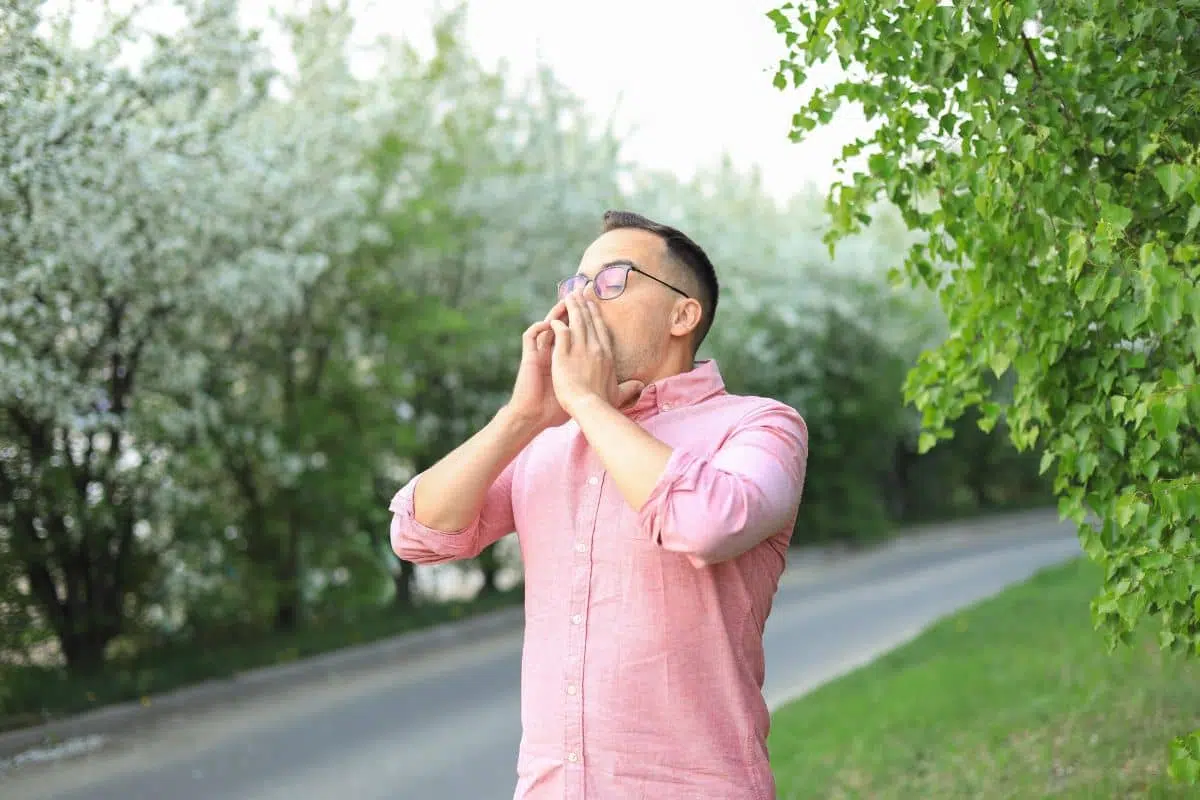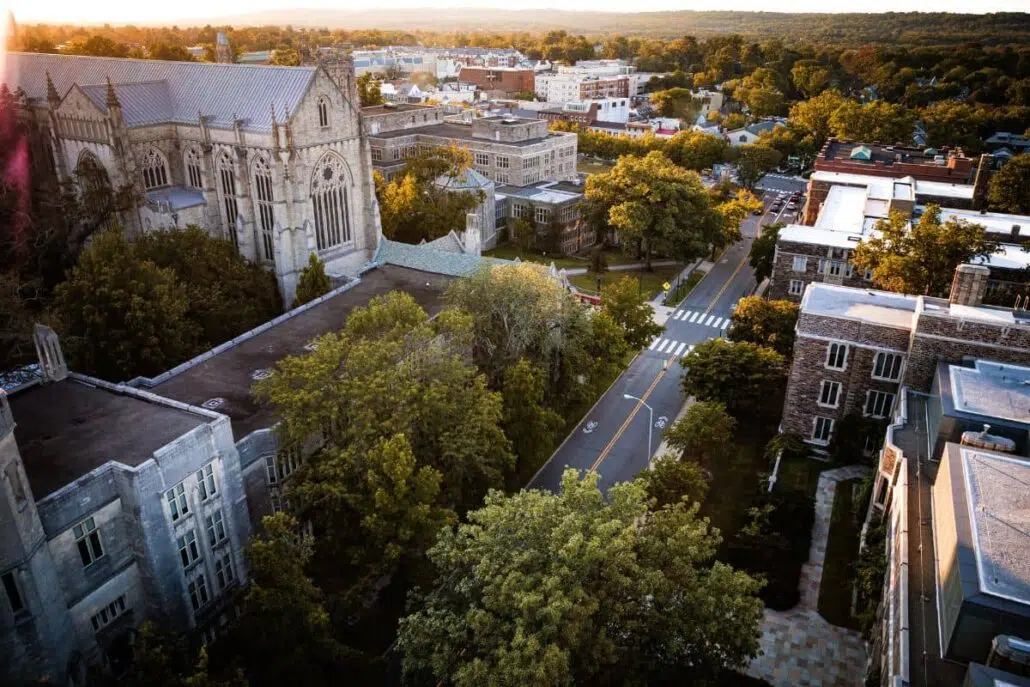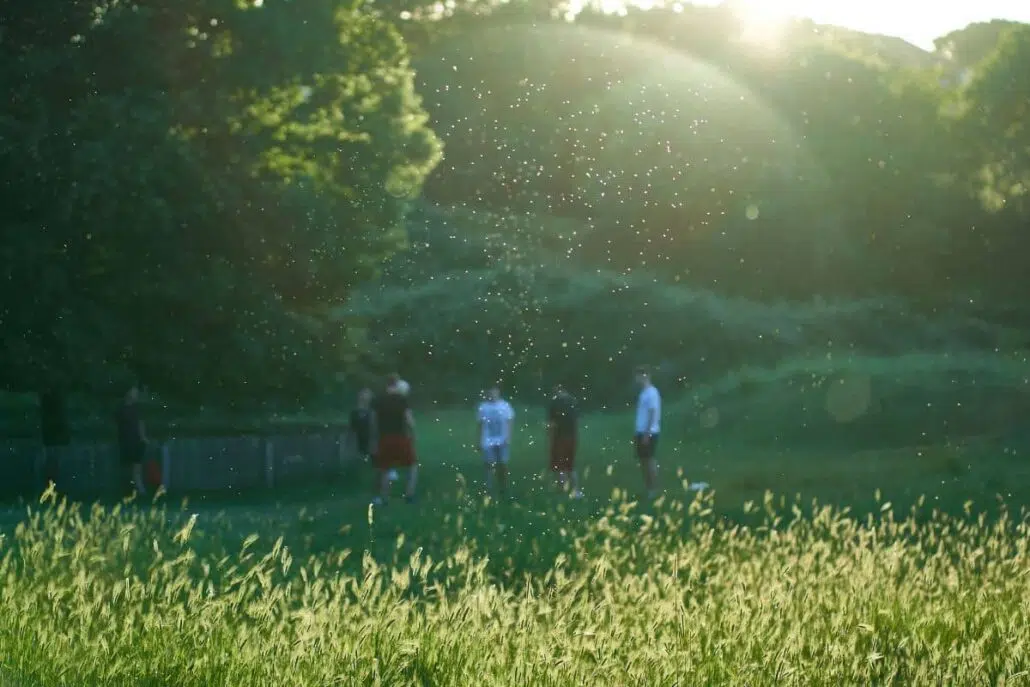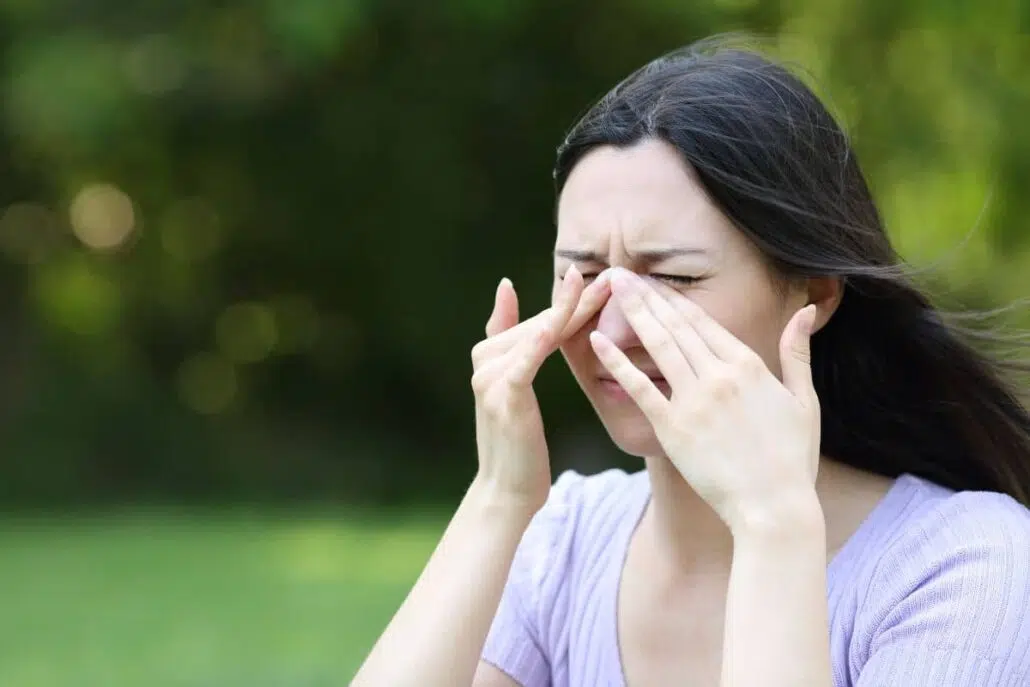Princeton, NJ, is famous for its charm—historic homes, winding streets, and lush tree canopies. But when spring allergy season arrives, many residents find themselves battling tree pollen allergy symptoms. The same tree-lined streets that make Princeton beautiful also create the perfect environment for common allergens. Tree pollen from oaks, maples, birches, and other local types of trees fills the air, often weeks before other signs of spring appear. For those allergic to tree pollen, the result can be months of sneezing, itchy eyes, nasal congestion, and fatigue.
This guide explains why tree pollen allergy season in Princeton is so challenging, what allergy symptoms to watch for, and—most importantly—how the Princeton ENT & allergy specialists at Becker ENT & Allergy can help you find relief with personalized treatment options.

Quick Facts About Princeton’s Tree Pollen Allergy Season
- Princeton’s high density of mature trees means tree pollen counts surge in spring.
- Allergy season start is often in February and can last until early June.
- High winds and humidity spread pollen quickly and widely.
- Pollen clings to clothing, hair, and surfaces—making indoor exposure common.
- Becker ENT & Allergy offers advanced testing and allergy treatment plans, including sublingual immunotherapy, to address seasonal allergy symptoms.
Why Princeton’s Suburbs Are a Hotspot for Pollen Allergies
Princeton is rich in greenery, with neighborhoods full of mature trees and public parks. While this provides shade and beauty, it also means higher pollen counts when spring arrives. Tree pollen season in New Jersey typically begins earlier than many expect, and Princeton’s concentration of trees increases exposure levels. Oak, birch, maple, walnut, and sycamore are among the most problematic types of trees and produce large quantities of tree pollen—a key trigger of pollen allergy symptoms.
These allergens can travel far beyond the trees themselves, meaning even residents without trees in their own yards may be affected. When pollen levels rise, allergic reactions can occur both outdoors and indoors.
Dense Tree Coverage Raises Tree Pollen Counts in Spring

Princeton’s scenic streets, the university campus, and local parks such as Herrontown Woods and Marquand Park are filled with mature trees that produce heavy pollen in the spring. Many of these trees—oak, maple, birch, cedar, and elm—are known to be high-pollen producers. Because the town has such a high percentage of older trees, tree pollen counts can spike quickly and remain elevated for weeks. This leads to ongoing exposure for many allergy sufferers, especially those with tree allergies or hay fever.
Early Allergy Season Start and a Long Pollen Season
Allergy season start in Princeton often begins as early as February, well before spring officially arrives. In milder winters, pollen-producing trees like cedar and alder may release pollen even sooner. March and April bring peak tree pollen levels, with ash, birch, elm, maple, mulberry, oak, pecan, and sycamore trees releasing large volumes of pollen. In some years, the season end may not occur until early June, especially when different types of trees pollinate at overlapping times.
This extended pollen season contributes to prolonged seasonal allergy symptoms, including fatigue and nasal congestion, especially in residents who are allergic to tree pollen.
High Winds and Humidity Spread Pollen Throughout the Season
Princeton’s spring weather often includes windy days that can carry tree pollen particles for miles. Even if you live far from large trees, the wind can transport common allergens right into your neighborhood. Humidity also plays a role—it helps pollen stick to surfaces and linger in the air. This makes it harder for allergy sufferers to avoid exposure, especially during the early spring allergy season.
How Tree Pollen Sticks to Everything Indoors and Out

One reason tree pollen allergies are difficult to control is that pollen doesn’t just stay outside. It clings to skin, hair, clothing, and even pets, entering the home long after you’ve come indoors. In Princeton, where residents enjoy outdoor activities, pollen allergy symptoms can be triggered even inside closed homes. Pollen often settles on upholstery, bedding, and air vents, increasing the risk of allergic rhinitis and worsening asthma symptoms.
Landscaping Choices That Raise Pollen Levels in Spring
Urban planning decisions can influence pollen counts. Many suburban developments, including some in Princeton, favor male trees because they don’t produce fruit or seeds that fall on sidewalks. Unfortunately, male trees release tree pollen into the air, increasing allergy symptoms across entire neighborhoods. Over time, these choices have contributed to more intense tree pollen seasons and higher rates of pollen allergy complaints.
Tree pollen season starts early in Princeton
Book your consultation with our allergy and ENT doctors now.
Allergy Symptoms You Shouldn’t Ignore During Tree Pollen Season
Tree pollen allergy symptoms can include:
- Sneezing and runny nose
- Itchy, watery eyes
- Nasal congestion and sinus pressure
- Coughing, sore throat, or hoarseness
- Fatigue, low energy, or brain fog
- Worsening of asthma or hay fever
Some individuals also experience oral allergy syndrome, a mild food allergy reaction where fruits like apples, carrots, or celery cause itching in the mouth due to similarities to birch tree pollen proteins. If symptoms persist across spring, summer, or fall allergies, or if you suspect you’re allergic to tree pollen, it’s time to consider professional allergy testing.

Outdoor and Indoor Tips to Reduce Tree Pollen Exposure
Outdoor tips to reduce exposure:
- Monitor daily pollen counts using reputable sources like the National Allergy Bureau.
- Avoid outdoor activities during early morning hours when tree pollen counts are highest.
- Wear sunglasses and a hat to prevent pollen from reaching your eyes and hair.
- Use a mask while gardening or doing yard work.
Indoor tips for limiting allergens:
- Keep windows closed and run air conditioning with HEPA filtration.
- Change clothes and shower after spending time outdoors.
- Wash bedding weekly during spring allergy season.
- Clean pets after they’ve been outside to remove pollen.
- Vacuum carpets and furniture using a HEPA-equipped vacuum.
Why OTC Allergy Medications May Not Be Enough for Pollen Allergies
While over-the-counter antihistamines, nasal sprays, and decongestants may provide temporary relief, they don’t address the root immune response to tree pollen. Many allergy sufferers find that symptoms return quickly without consistent management. Prescription-strength treatments and long-term therapies like sublingual immunotherapy or allergy shots can significantly reduce your reaction to tree pollen levels.
When to See an Allergist About Tree Pollen Allergy Symptoms
If pollen allergy symptoms are interfering with sleep, work, or school—or if your asthma worsens during the spring—it’s time to see a qualified allergist. At Becker ENT & Allergy, our specialists conduct allergy testing to determine which types of trees you’re reacting to. Then, we create a personalized allergy treatment plan that may include prescription nasal sprays, sublingual immunotherapy, or allergy shots.
Expert Allergy Treatment Options at Becker ENT & Allergy in Princeton
Becker ENT & Allergy offers care at two convenient Princeton offices—on Bunn Drive and Ewing Street. Our board-certified providers specialize in treating seasonal allergies, tree allergies, asthma, and pollen food allergy syndrome.
Treatment options may include:
- Personalized allergy treatment plans
- Prescription medications and advanced antihistamines
- Allergy testing and immunotherapy for tree pollen and grass pollen
- Long-term support to manage spring allergies, summer allergies, and fall allergies
Schedule a Consultation with Princeton Allergy Specialists
You don’t have to suffer through March, April, May, or even June with persistent tree pollen allergy symptoms. The team at Becker ENT & Allergy offers expert evaluation, treatment options, and support to help you feel better—this season and next. Contact us today to schedule your appointment.

